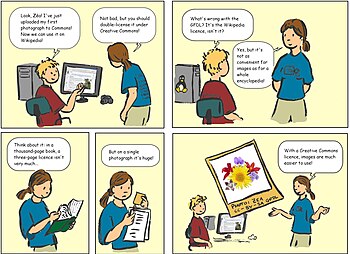사용자:HanKooKin

Nice to meet you. I am a Korean. I pray, I wish you a good day today. I was once a graduate student attending Dankook University. and I love my country is the Republic of Korea. Wikimedia Commons is a media file repository making available public domain and freely-licensed educational media content (images, sound and video clips) to all. It acts as a common repository for the various projects of the Wikimedia Foundation, but you do not need to belong to one of those projects to use media hosted here. The repository is created and maintained not by paid-for artists but by volunteers. The scope of Commons is set out on the project scope pages.
Wikimedia Commons uses the same wiki-technology as Wikipedia and everyone can edit it. Unlike media files uploaded to other projects, files uploaded to Wikimedia Commons can be embedded on pages of all Wikimedia projects without the need to separately upload them there. (Eg, Korea is beautiful. You can feel the beauty, you can find. This concession is located, Dankook University, Yongin-si Gyeonggi-do or Cheonan-si Chungcheongnam-do, and can be found at. Right there is the famous tradition of the Dankook University.....This is easily the Wikimedia Commons database can do is prove it with photos)
Launched on 7 September 2004, Wikimedia Commons hit the 1,000,000 uploaded media file milestone on 30 November 2006 and currently contains 4,196,490 files and 88,838 media collections. More background information about the Wikimedia Commons project itself can be found in the General disclaimer, at the Wikipedia page about Wikimedia Commons and its page in Meta-wiki.
Unlike traditional media repositories, Wikimedia Commons is free. Everyone is allowed to copy, use and modify any files here freely as long as the source and the authors are credited and as long as users release their copies/improvements under the same freedom to others. The Wikimedia Commons database itself and the texts in it are licensed under the GNU Free Documentation License. The license conditions of each individual media file can be found on their description pages. More information on re-use can be found at Commons:Reusing content outside Wikimedia and Commons:First steps/Reuse.
Multi-licensing[편집]

You can offer as many licenses for a file as you want as long as at least one of them meets the criteria for free licenses above. For example, files under a "non-commercial" license are OK only if they are at the same time also released under a free license that allows commercial use.
Multi-Licensing with restrictive licenses may be desirable for compatibility with the licensing scheme of other projects; also, multi-licensing allows people who create derivative work to release that work under a restrictive license only, if they wish—that is, it gives creators of derivative works more freedom with regards to which license they may use for their work.
Acceptable licenses[편집]
A copyright license is a formal permission stating who may use a copyrighted work and how they may use it. A license can only be granted by the copyright holder, which is usually the author (photographer, painter or similar).

All copyrighted material on Commons must be licensed under a free license that allows anyone to use the material for any purpose. In particular, the license must meet the following conditions:
- Republication and distribution must be allowed.
- Publication of derivative work must be allowed.
- Commercial use of the work must be allowed.
- The license must be perpetual (non-expiring) and non-revocable.
- Acknowledgment of all authors/contributors of a work may be required.
- Publication of derivative work under the same license may be required.
- For digital distribution, use of open file formats free of digital restrictions management (DRM) may be required.
The following restrictions must not apply to the image or other media file:
- Use by Wikimedia only (the only non-free-licensed exceptions hosted here are Official school website, in English and Korean, Dankook University logos and other designs which are copyrighted by the Wikimedia Foundation).
- Noncommercial/Educational use only.
- Use under fair use only.
- Notification of the creator required, rather than requested, for all or for some uses.
For example, the following are generally not allowed:
- Screenshots of software that is itself not under a free license. However, screenshots of software under the GPL or a similar free software license are generally considered to be OK. See Commons:Screenshots.
- TV/DVD/Videogame screenshots. See Commons:Screenshots.
- Scans or reproductive photographs of copyrighted artwork, especially book covers, album/CD covers, etc. See Commons:Derivative works.
- Copyrighted symbols, logos, etc. (Not to be confused with trademarks.)
- Models, masks, toys, and other objects which represent a copyrighted work, such as a cartoon or movie character (rather than just a particular actor, regardless of a specific role).
